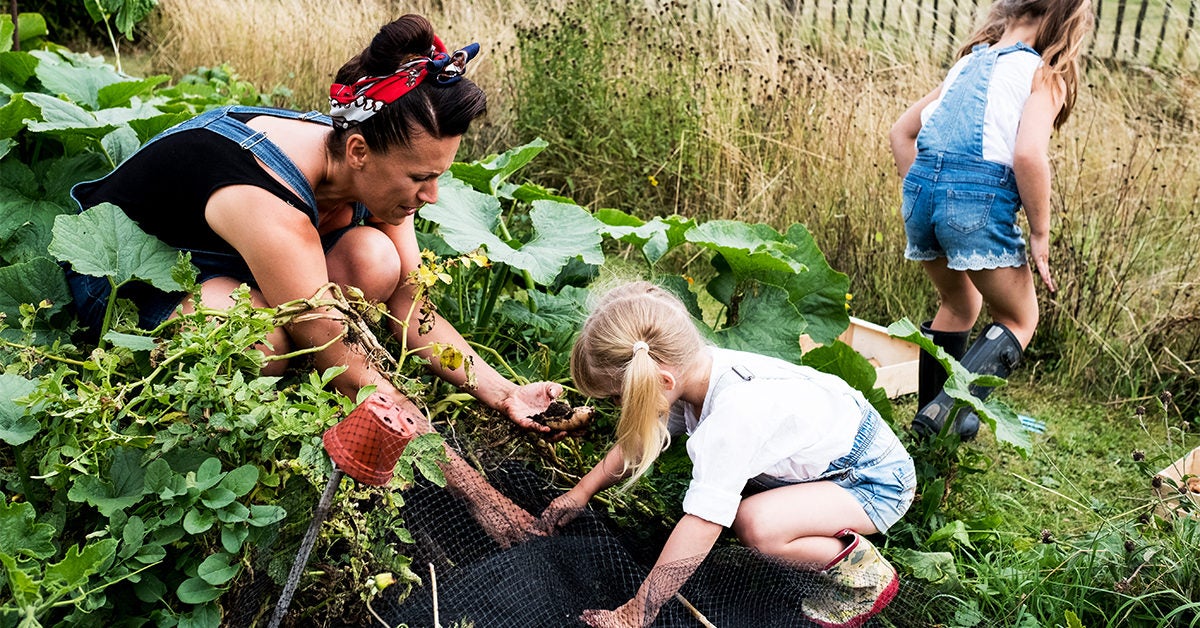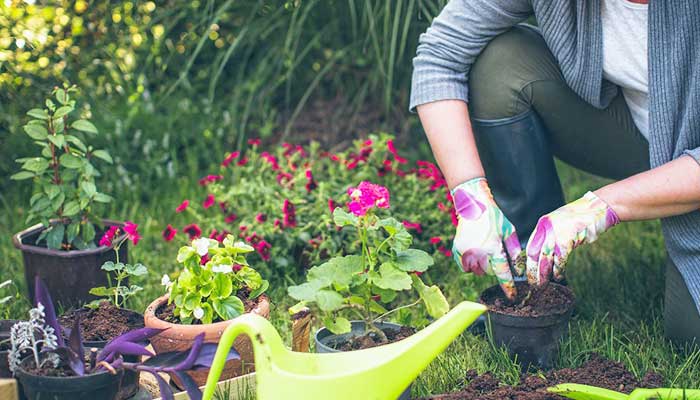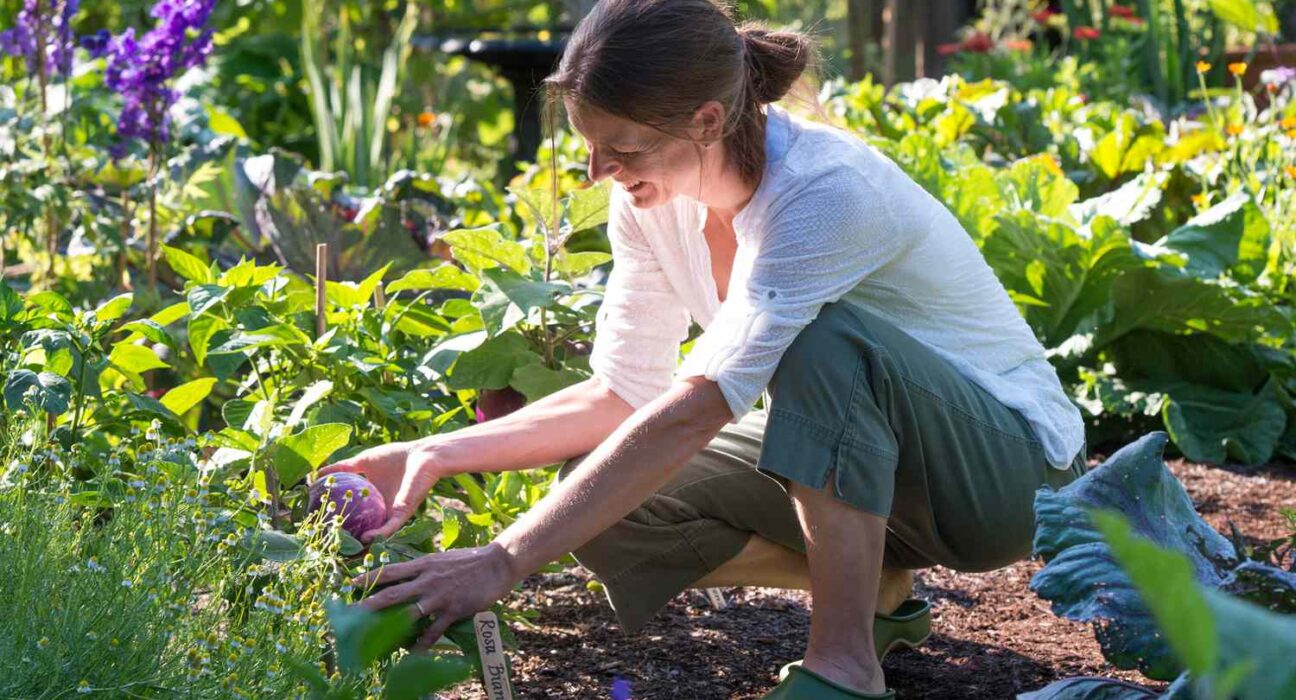Sustainable gardening practices are becoming increasingly important as the world population continues to grow and the impact of human activities on the environment becomes more apparent. By adopting sustainable gardening practices, individuals and communities can reduce their impact on the environment, conserve resources, and create a healthier, more resilient landscape.


Here are some of the most effective sustainable gardening practices for reducing waste and promoting environmental health:
Composting: Composting is the process of breaking down organic matter, such as kitchen scraps and yard waste, into a nutrient-rich soil amendment. By composting, gardeners can reduce the amount of waste sent to landfills and improve the health of their soil.
Crop rotation: Crop rotation is the practice of planting different crops in different areas of the garden each year. This helps to reduce the buildup of pests and diseases, improve soil health, and conserve resources.
Mulching: Mulching is the process of covering the soil around plants with a layer of organic material, such as leaves, grass clippings, or bark chips. This helps to conserve moisture, regulate soil temperature, and reduce the need for watering.
Rainwater harvesting: Rainwater harvesting involves collecting rainwater from rooftops and using it to water plants and crops. This helps to conserve precious water resources and reduce the impact of watering on the environment.
Plant selection: Choosing native plants that are well-suited to the local climate and soil conditions is an important aspect of sustainable gardening. These plants require less water, fertilizer, and maintenance, and are better adapted to local conditions, resulting in a more resilient and sustainable landscape.
Natural pest control: Natural pest control involves using methods, such as companion planting and the release of beneficial insects, to control pests and diseases in the garden. This helps to reduce the use of harmful pesticides and promotes a healthy, balanced ecosystem.
Minimal tillage: Minimal tillage is the practice of minimizing the disturbance of the soil in the garden. This helps to conserve soil structure, improve soil health, and reduce the need for irrigation.
Incorporating these sustainable gardening practices into your routine can have a profound impact on the health of your garden and the environment. By reducing waste, conserving resources, and promoting a healthy, balanced ecosystem, sustainable gardening practices help to create a more resilient and sustainable landscape for future generations.
Sustainable gardening practices can also help to reduce waste by reducing the number of resources needed to maintain a garden and by diverting waste from landfills. For example, composting can help to reduce the amount of food waste sent to landfills and rainwater harvesting can help to conserve precious water resources.


Reducing the use of chemical fertilizers and pesticides
Another aspect of sustainable gardening is reducing the use of chemical fertilizers and pesticides. Chemical fertilizers and pesticides can have negative impacts on the environment, including soil and water contamination, harm to beneficial insects and wildlife, and potential harm to human health.
Instead, gardeners can use organic methods to fertilize and protect their plants. For example, composting can provide plants with all the nutrients they need, while companion planting and the use of companion insects can help to control pests.
It’s also important to consider the impact of garden design on the environment. For example, incorporating a variety of different habitats, such as native plants, water features, and birdhouses, can create a diverse and balanced ecosystem that supports a wide range of wildlife.


Permeable materials
Additionally, using permeable materials, such as gravel or permeable pavers, in garden walkways and patios can help to reduce runoff and promote the infiltration of rainwater into the soil. This can help to conserve water, reduce erosion, and improve soil health.
Finally, gardeners can also reduce waste by using sustainable materials in their garden, such as recycled wood and metal, and by using energy-efficient tools, such as manual tools or electric tools with rechargeable batteries.
Urban and small-space gardening presents unique challenges and opportunities for sustainable gardening. Urban environments often have limited space and resources, but they also offer opportunities for community gardening, shared resources, and innovative solutions.
For example, community gardens can help to bring people together and promote a sense of community, while shared resources, such as tools and water, can help to conserve resources and reduce waste. Vertical gardening and container gardening can also provide opportunities for growing food and plants in small spaces.
Incorporating sustainable gardening practices into urban and small-space gardens can help to conserve resources, reduce waste, and promote environmental health. Additionally, these practices can help to create healthier, more resilient, and more sustainable communities.
In addition to reducing waste, sustainable gardening practices can also help to promote environmental health by reducing the impact of human activities on the environment. For example, by choosing native plants, gardeners can reduce the use of water, fertilizer, and other resources, and by using natural pest control methods, they can reduce the use of harmful pesticides.
Conclusion
Sustainable gardening practices are essential for reducing waste and promoting environmental health. By incorporating these practices into urban and small-space gardening, individuals and communities can conserve resources, reduce their impact on the environment, and create a healthier, more sustainable landscape.
By adopting these practices, individuals and communities can conserve resources, reduce their impact on the environment, and create a more resilient and sustainable landscape for future generations. Whether you have a large garden or a small balcony, there are many simple steps you can take to make your garden more sustainable and reduce your impact on the environment.





Leave feedback about this